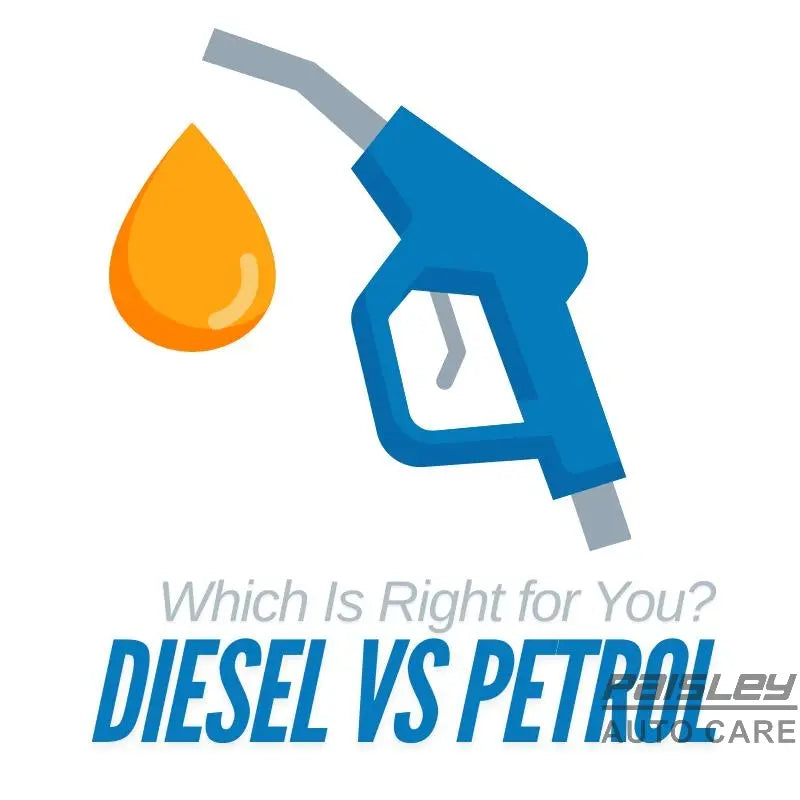Diesel vs Petrol: Which Is Right for You?
When buying a car, one of the most important decisions you’ll face is whether to choose a diesel or petrol engine. Each fuel type comes with its own set of advantages and drawbacks, impacting factors like performance, cost, and environmental impact. Let’s break down the key differences to help you decide which is right for you.
1. Fuel Efficiency and Cost
-
Diesel: Diesel engines are renowned for their superior fuel efficiency, especially over long distances. They offer better miles per gallon (MPG) than petrol engines, making them ideal for those who do a lot of motorway driving. However, diesel cars tend to be more expensive to purchase and maintain. Diesel fuel itself can also be pricier in some regions.
-
Petrol: Petrol engines are generally less fuel-efficient than their diesel counterparts but tend to cost less upfront. They are often better suited for city driving or short trips where frequent stops and starts reduce the fuel efficiency advantage of diesel. Petrol is typically cheaper at the pump, although it burns faster than diesel, leading to more frequent fill-ups.
Verdict: If you drive long distances regularly, diesel may save you money in the long run despite the higher initial cost. For city dwellers or those who drive less, petrol is often the more economical option.
2. Performance
-
Diesel: Diesel engines generate more torque, which means they excel in low-speed power and pulling heavy loads. This makes diesel vehicles popular for towing and off-road driving. However, diesel engines can feel less responsive at higher RPMs compared to petrol engines, which can affect driving dynamics for those who prefer a sportier feel.
-
Petrol: Petrol engines generally offer more horsepower and quicker acceleration, giving a smoother and more enjoyable driving experience for most drivers. This makes them better suited for performance-oriented vehicles or those who value speed and responsiveness.
Verdict: If you need a vehicle for towing or heavy-duty use, diesel’s torque makes it a better choice. For a sportier driving experience or lighter vehicles, petrol engines have the upper hand.
3. Environmental Impact
-
Diesel: Diesel engines produce fewer carbon dioxide (CO2) emissions per mile than petrol, making them historically seen as the more eco-friendly option in terms of greenhouse gases. However, diesel engines emit higher levels of nitrogen oxides (NOx) and particulate matter, which contribute to air pollution and have led to tighter environmental regulations, particularly in cities. Diesel cars often face additional charges in low-emission zones, which can be costly.
-
Petrol: Petrol engines emit more CO2 than diesel engines but produce fewer harmful pollutants like NOx and particulates. As cities crack down on emissions, petrol cars are less likely to face restrictions in urban areas. In recent years, advances in petrol engine technology have also helped reduce their environmental impact, narrowing the gap between diesel and petrol emissions.
Verdict: Diesel engines may offer lower CO2 emissions, but their NOx and particulate pollution make them less suitable for urban areas with strict air quality regulations. Petrol engines are generally more city-friendly and less harmful in terms of air pollution.
4. Maintenance and Reliability
-
Diesel: Diesel engines are built to handle high compression and are often more durable, which can lead to a longer lifespan. However, maintenance can be more expensive due to the complexity of modern diesel engines, particularly with the addition of components like Diesel Particulate Filters (DPFs) and AdBlue systems, both of which require regular attention. Diesel cars are also more prone to issues with shorter, city-based driving because the engine and DPFs are designed for longer journeys.
-
Petrol: Petrol engines are generally simpler and cheaper to maintain than diesel engines. They are better suited to shorter trips and frequent starts and stops, as they don’t suffer from DPF issues like diesel engines do. While petrol engines may not last as long as diesel engines under heavy use, they tend to be more reliable for everyday driving.
Verdict: Diesel engines may last longer but come with higher maintenance costs, especially for city driving. Petrol engines offer a lower-cost, simpler maintenance experience for most drivers.
5. Resale Value
-
Diesel: Traditionally, diesel cars held higher resale values due to their fuel efficiency and longer lifespan. However, recent changes in environmental regulations and increased scrutiny on diesel emissions have caused the demand for used diesel vehicles to drop, which is affecting resale values.
-
Petrol: Petrol cars tend to have a lower initial value compared to diesel cars, but as cities move toward petrol-friendly low-emission zones, their resale values have become more stable. The market for used petrol cars remains strong, particularly for smaller and city-friendly models.
Verdict: Diesel cars have historically held their value better, but changing regulations and shifting public opinion may make petrol cars a safer bet for resale in the near future.
Conclusion
So, which engine is right for you? It largely depends on your driving habits and priorities. If you frequently travel long distances or need a vehicle with heavy towing power, a diesel car may be the better choice. However, for city driving, lighter vehicles, or if you’re concerned about emissions regulations, a petrol car could offer better value and fewer headaches down the line.
In today’s market, it’s also worth considering alternatives like hybrid or electric vehicles, which combine the benefits of both fuel types while offering a greener option for the future.




